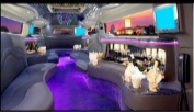Indianapolis, Indiana – Copyright lawyer and professional photographer Richard Bell of McCordsville, Indiana filed the latest in a string of lawsuits alleging infringement of a copyrighted photo of the Indianapolis skyline.
This lawsuit, filed by Bell on his own behalf in the Southern District of Indiana, lists Honey Creek Capital, LLC of Carmel, Indiana as Defendant. Bell asserts that Honey Creek infringed a copyrighted work titled “Indianapolis Nighttime Photo” by publishing the photo on Honey Creek’s website without having purchased a license. The photo has been registered with the U.S. Copyright Office under Registration No. VA0001785115.
Bell asks the court for the maximum statutory damages allowable, contending that Honey Creek is willfully infringing “with oppression, fraud, and malice.” In addition to damages, Bell seeks injunctive relief, costs and attorneys’ fees.
Practice Tip: Bell has filed many lawsuits on his own behalf asserting copyright infringement in Indiana federal courts. See:
• Indianapolis Real Estate Agent Sued for Infringing Copyright of Photo
• Limousine Service Sued for Copyright Infringement
• Bell’s Copyright Litigation Expands to Include IU, Purdue and Others
• Copyright Attorney Shifts to Alleging Infringement of Different Photo
• Attorney/Plaintiff Accuses Wisconsin Analytics Firm of Copyright Infringement
• Bell Names Aramark in Latest Copyright Infringement Lawsuit
• Attorney/Photographer Sues North Carolina Hotel Operator
• Attorney/Plaintiff Bell Files Three New Lawsuits Over Photo of Indianapolis Skyline
• Eight New Infringement Lawsuits Filed by Attorney/Plaintiff
• Attorney/Photographer Files Two New Infringement Lawsuits
• Lawsuit by Frequent Copyright Litigant Dismissed for Lack of Jurisdiction
• District Court Terminates Copyright Suit Over Photo; Plaintiff Appeals
• Remaining Copyright Defendants in Bell Lawsuit to be Dismissed
• Attorney/Photographer Sues Georgia Real Estate Company for Infringing Copyrighted Photo
• Sovereign Immunity May Take a Toll on Bell’s Latest Copyright Lawsuit
• Appellate Court Dismisses Copyright Appeal as Premature
• Bell Rings in the Holiday Weekend with a New Copyright Lawsuit
• Bell Files New Copyright Infringement Lawsuit
• Bell Sues Georgia-Based FindTicketsFast.com for Copyright Infringement
• Richard Bell Files Two New Copyright Infringement Lawsuits
• Court Prevents Copyright Plaintiff Bell from Outmaneuvering Legal System; Orders Bell to Pay Almost $34,000 in Fees and Costs
• Three Default Judgments of $2,500 Ordered for Copyright Infringement
• Court Orders Severance of Misjoined Copyright Infringement Complaint
 Indiana Intellectual Property Law News
Indiana Intellectual Property Law News



